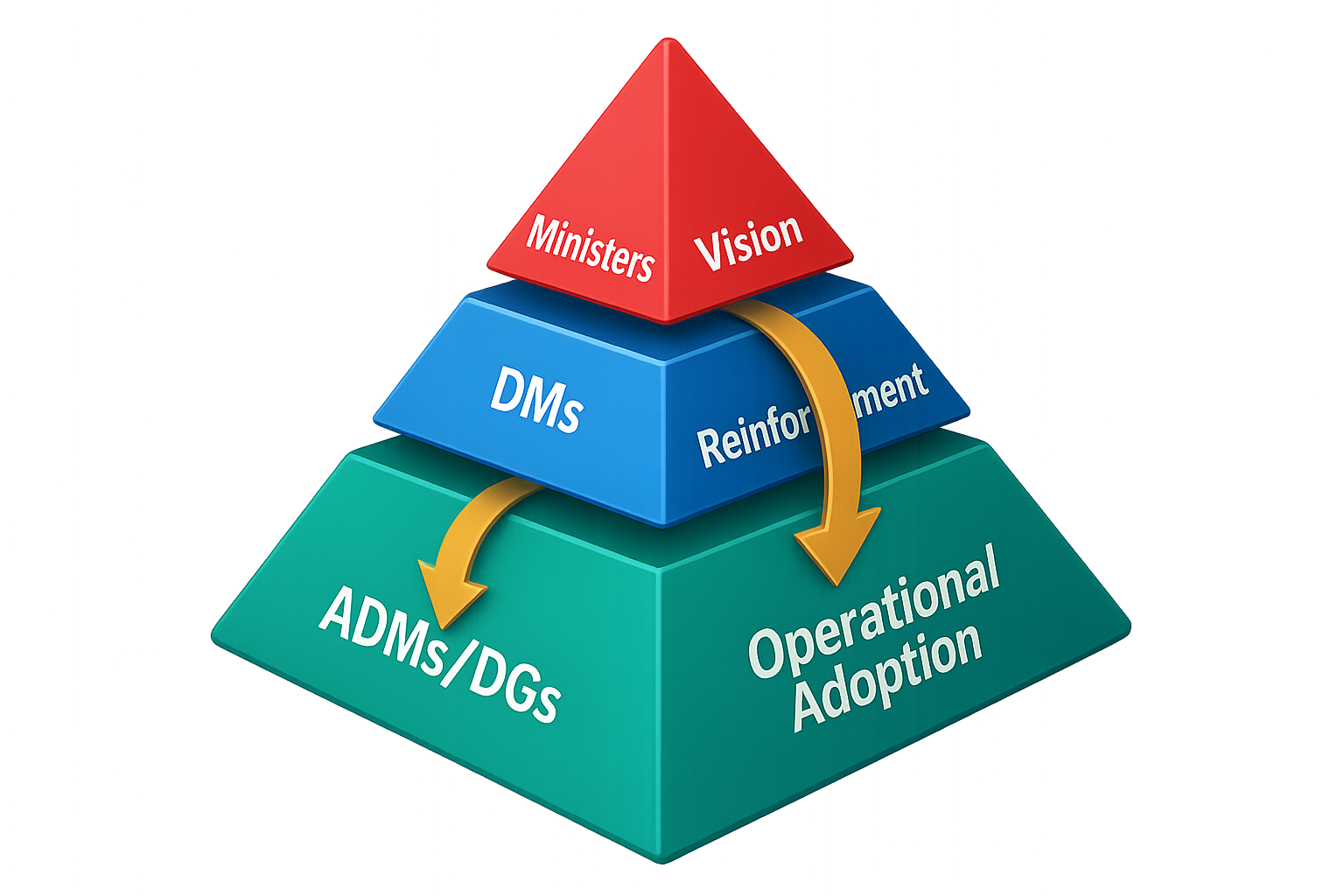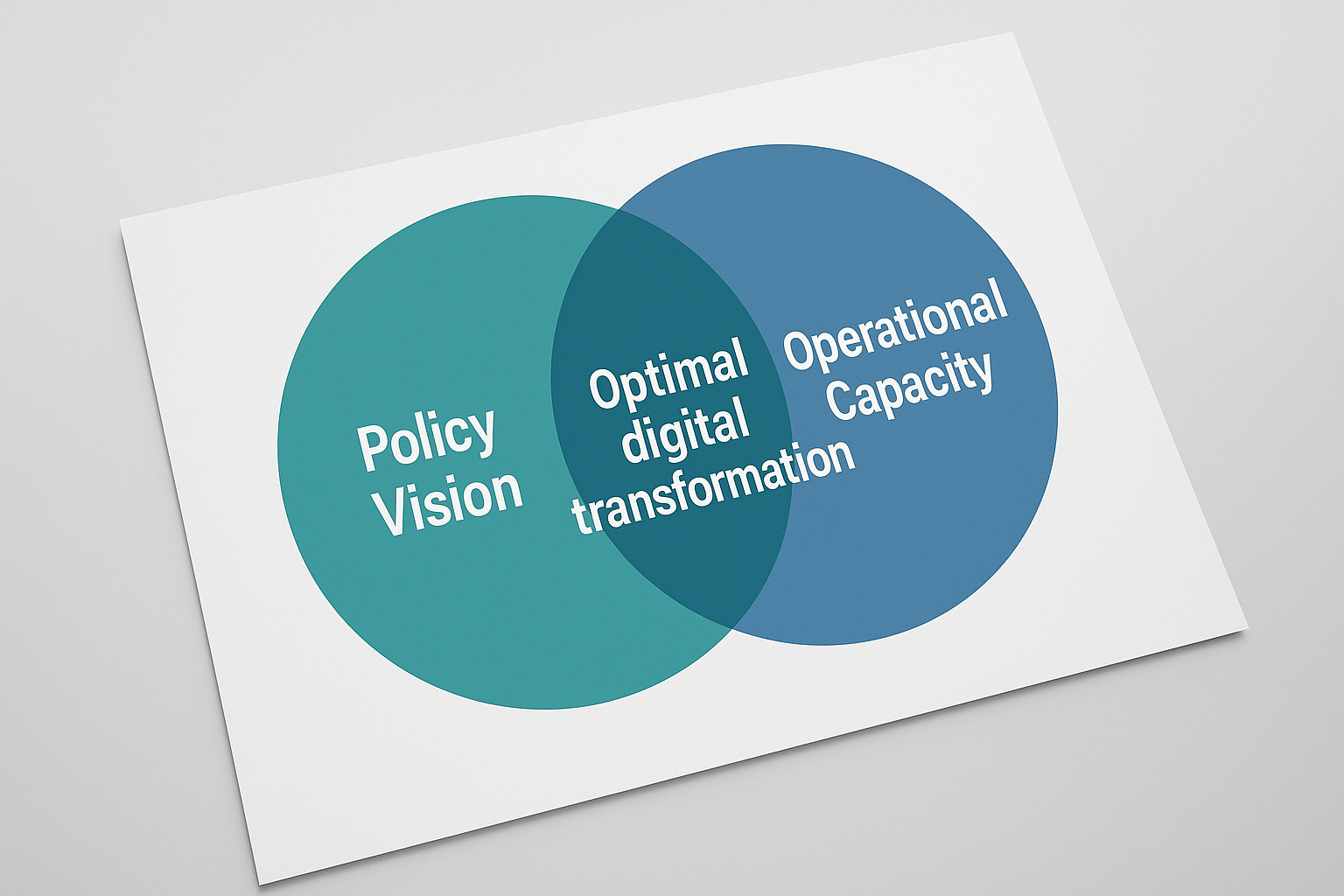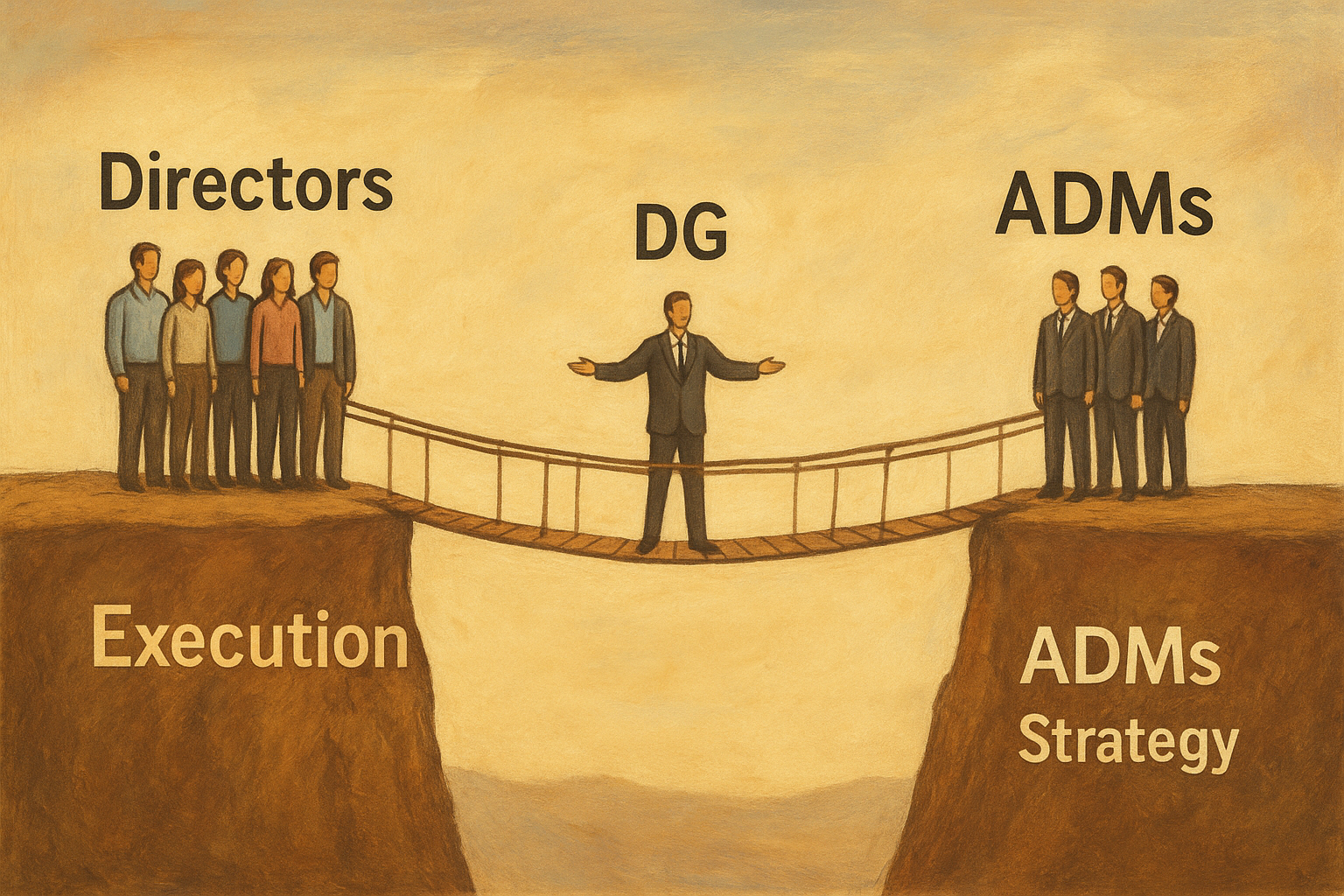Transforminator — thoughts about transformation and change leadership
-

Harnessing Self-Doubt to Transform
Turning a Perceived Weakness into a Leadership Resource In leadership culture, self-doubt is often framed as a flaw to be eliminated. Executives are told to “project confidence,” “trust their instincts,” and “silence the inner critic.” Yet research and experience in transformational contexts suggest the opposite: properly harnessed, self-doubt can be a strategic resource. Transformation leadership…
-

The Leader’s Crucial Transformation Ally
Why Leaders Need Honest Feedback in Transformation In transformational assignments, leaders are often lauded for their decisiveness and confidence. Yet the same qualities that secure promotion or high-stakes mandates can become liabilities when they mute honest feedback. The paradox of senior leadership is that the higher you rise, the less candid input you receive—and the…
-

Resilience Under Pressure
Sustaining Energy in Prolonged Transformation Transformation is not a sprint. For senior executives, the initial burst of urgency and focus can give way to long months—or years—of uncertainty, political friction, and relentless demands. What begins as a high-profile mandate to “fix” or “modernize” soon becomes a test of endurance: keeping yourself, your team, and the…
-

Confidence in the Fog of Transformation
Leading Through Ambiguity Without Pretending Certainty Transformational assignments are rarely neat. They are more often fog than roadmap—shifting conditions, unclear end-states, multiple stakeholders, and moving constraints. For senior executives accustomed to providing clarity, this can be disorienting. The instinct is to manufacture certainty: to declare a fixed plan, to over-specify, to project more confidence than…
-

The Transformation-Created Confidence Dip
Why Strong Leaders Doubt Themselves in Transformation For many senior executives, confidence is not optional—it’s the currency of leadership. Staff, boards, or ministers look to you for steadiness, especially when the path ahead is unclear. Yet even the most capable leaders experience a dip in confidence when they take on transformational mandates. This isn’t weakness.…
-

Losing Your Grip on Mastery
Why Old Habits Fail in Transformational Leadership One of the hardest moments for an experienced executive isn’t the steep learning curve of a first job. It’s the sudden realization, often years into a career, that the habits and instincts that carried them this far no longer seem to work. The reliable methods—the quick reading of…
-

When Strong Leaders Suddenly Feel Unsteady
The Hidden Challenge of Leading Transformations For seasoned leaders, the most surprising professional challenge often doesn’t arrive at the start of a career but after years of achievement. It comes in the form of a new mandate: a complex transformation, a high-stakes organizational bet, or an ambiguous problem that refuses easy answers. Sometimes this assignment…
-

Embedding Change: Ministers and DMs Driving Cultural Transformation in Government
Beyond Technology — Leading Cultural Change Digital transformation in government is not only a technological challenge but also a cultural one. Ministers and Deputy Ministers (DMs) are responsible for embedding new ways of working across departments, ensuring that staff adopt digital tools and processes while aligning with broader political priorities. Cultural transformation is critical because…
-

Driving Digital Transformation: Ministers and DMs as Strategic Anchors
Digital Transformation as a Leadership Imperative Digital transformation in government is not merely a technical upgrade; it is a strategic and cultural shift that affects every branch, process, and interaction with citizens. Ministers and Deputy Ministers (DMs) are responsible for anchoring this shift, ensuring that technology adoption aligns with political priorities, operational realities, and citizen…
-

Directors General: Operational Champions of Sustained Transformation
DGs as the Operational Backbone of Reform Directors General (DGs) play a pivotal role in the federal government’s transformation journey. Positioned between Assistant Deputy Ministers (ADMs) and Directors, they are uniquely situated to translate strategic sponsorship into practical execution. While ADMs focus on embedding reforms across portfolios, DGs ensure that change reaches the ground level—shaping…
